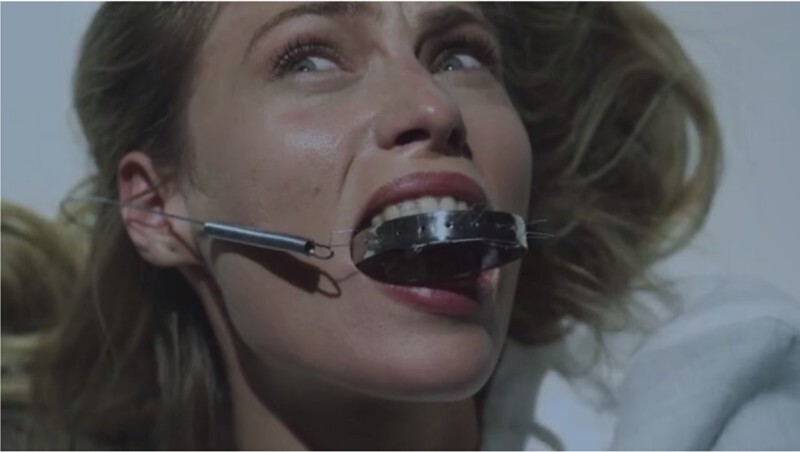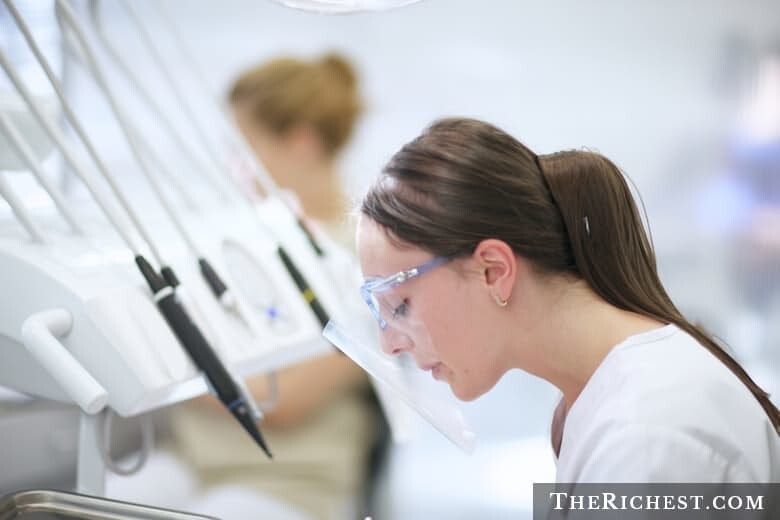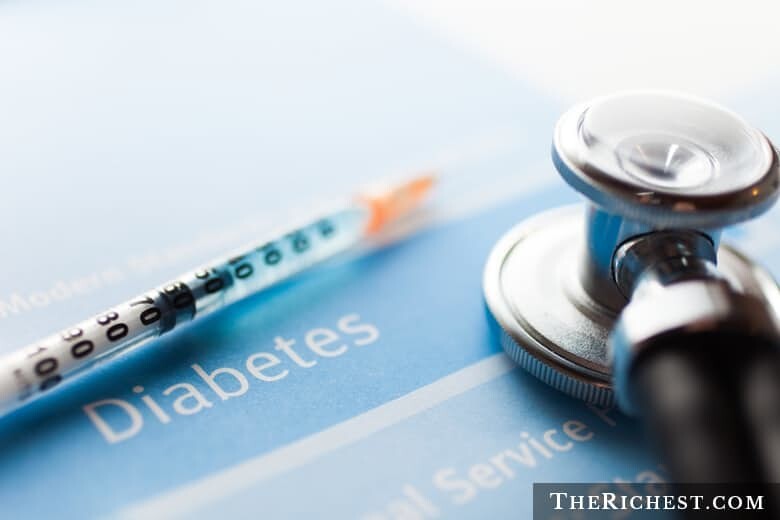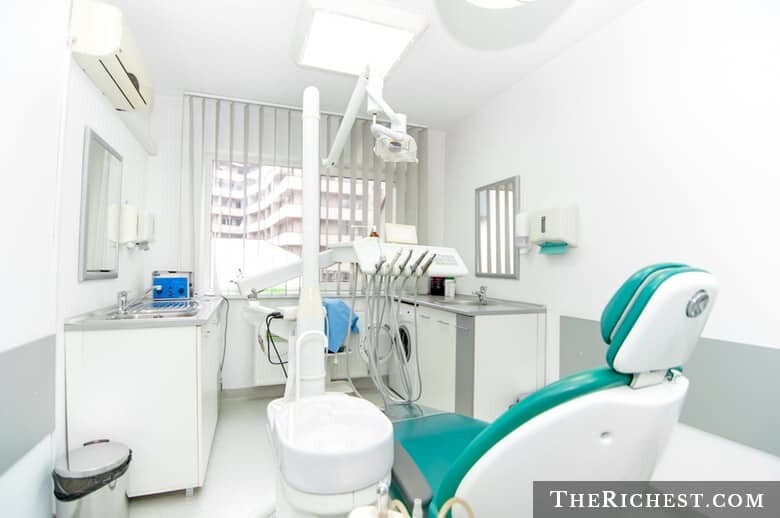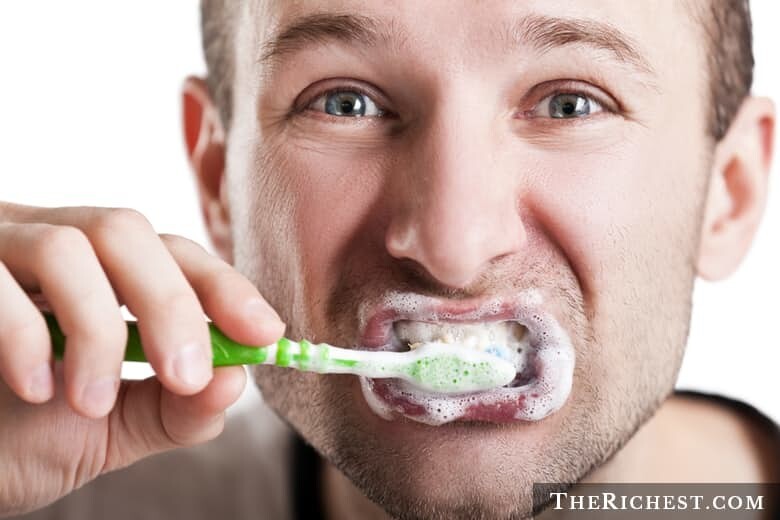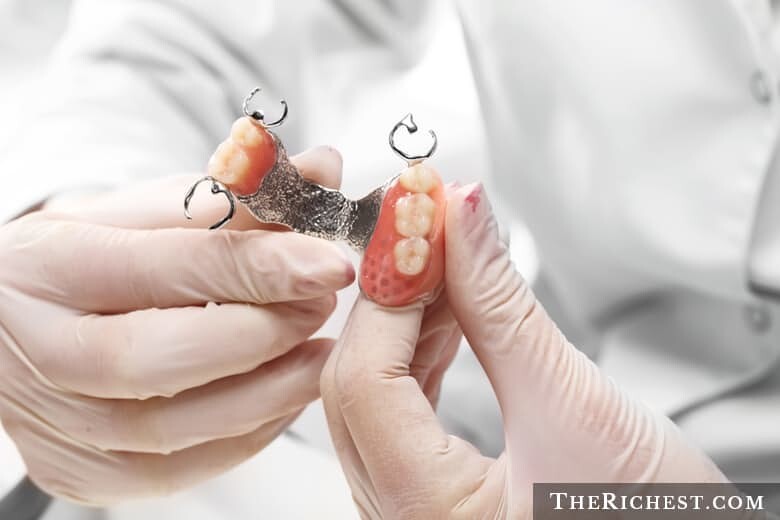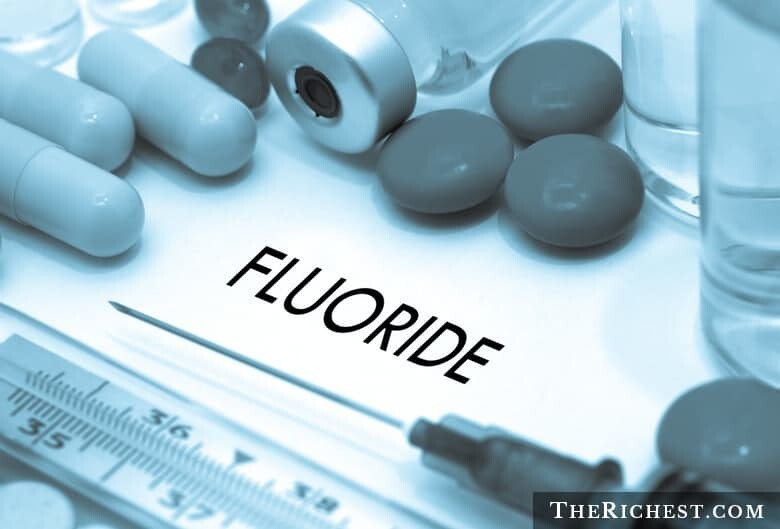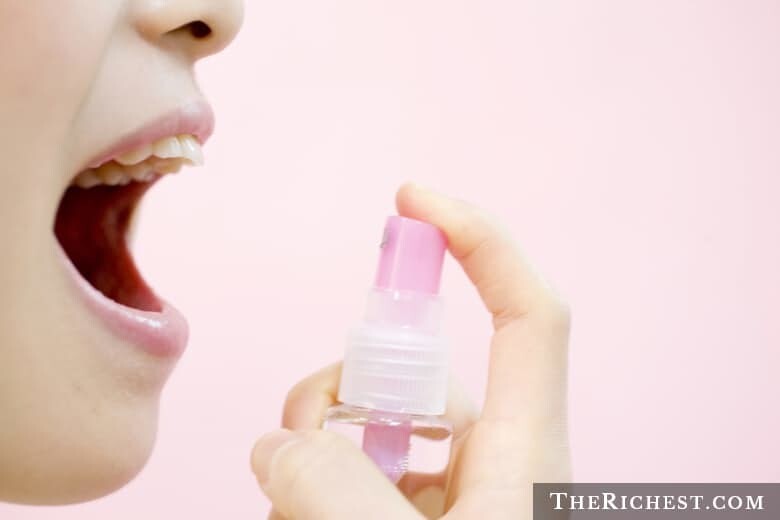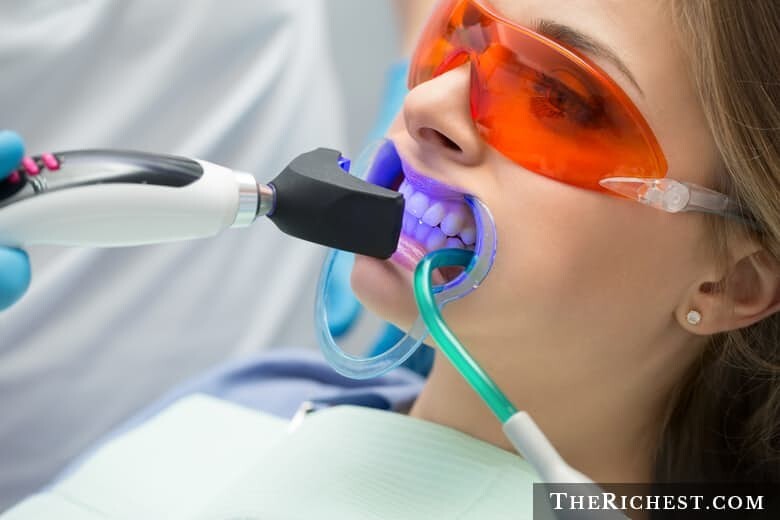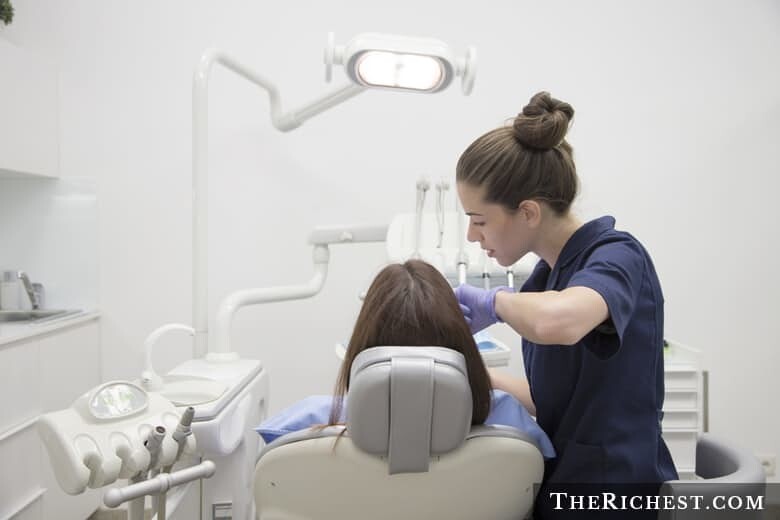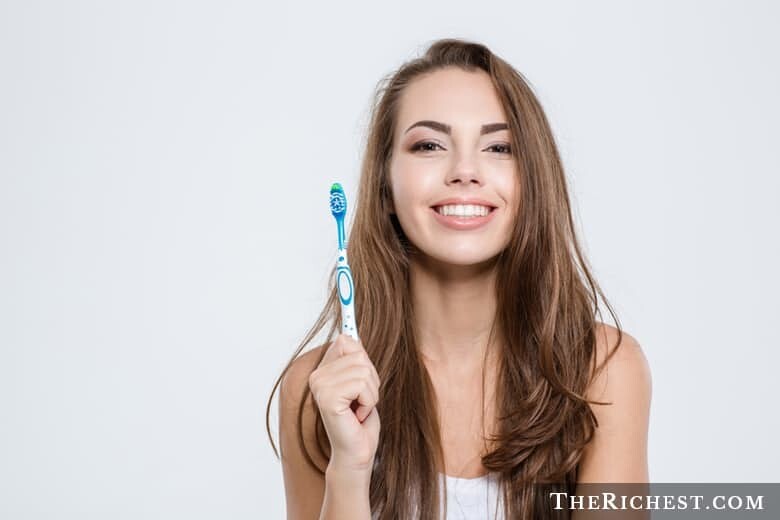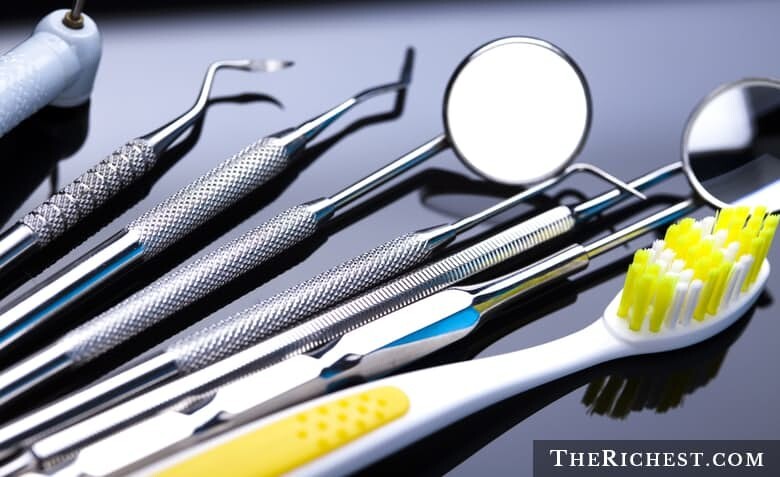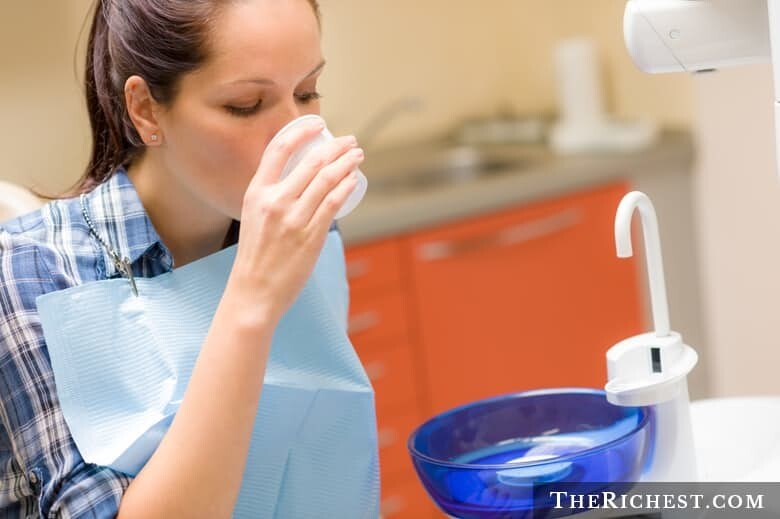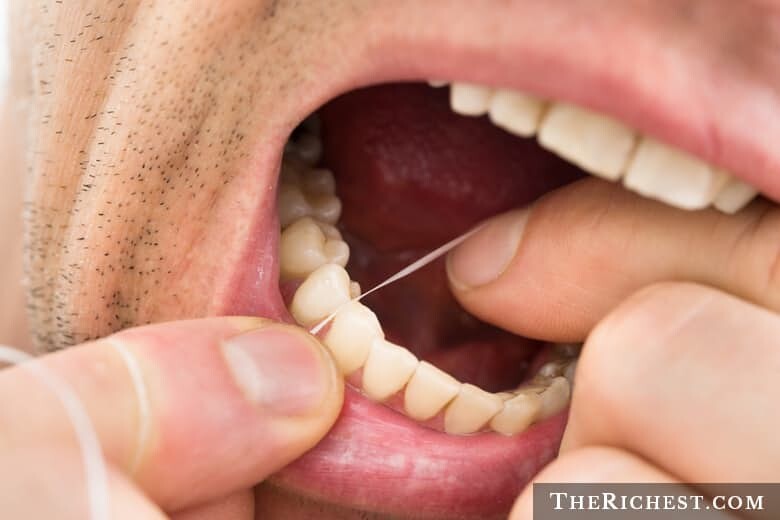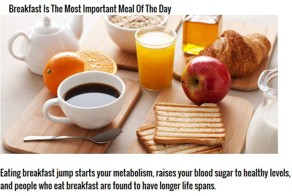750
16
However, although dentists are without a doubt trustworthy and honest, there are plenty of things that they don’t tell us or want us to know about. Sometimes this might be because of the fact that they do not consider it important for the general public to know, whilst in other instances, it might be because of misinformation or a misunderstanding on the dentist’s part.
15. Dentists Aren’t Always Up To Date
Just as with other forms of medicine, and almost any professional occupation, dentistry is constantly evolving and improving as new procedures or technologies become available. Almost every single material used by dentists has been changed in the past few decades several times, with the understanding of oral hygiene and decay becoming more fleshed out every day.
Unfortunately, not every dentist puts in the work to stay up to date on all these new techniques, ideas, materials and knowledge. The most professional practitioners generally put in more than 150 hours of development every year to ensure that they are not being left behind. If you feel worried that your dentist isn’t continuing their education in the field, then make sure to ask about whether they are engaged in programs, as they are unlikely to tell you without being prompted.
Unfortunately, not every dentist puts in the work to stay up to date on all these new techniques, ideas, materials and knowledge. The most professional practitioners generally put in more than 150 hours of development every year to ensure that they are not being left behind. If you feel worried that your dentist isn’t continuing their education in the field, then make sure to ask about whether they are engaged in programs, as they are unlikely to tell you without being prompted.
14. Saliva Is Really Important
One of the things that most people don’t realize is essential to keeping a healthy mouth is saliva. It plays a vital part of cleaning teeth, keeping gums healthy, and fighting bacteria that cause cavities. This is why chewing gum is generally seen as a good thing, as it helps to produce saliva through the chewing action. It does this through its ability to clean teeth by washing away food residue and due to its antibacterial properties.
“The buffering effects of saliva, the ability of saliva to counter the bad effects of sugar,” says Howard Pollick, a San Francisco-based dentist, “means if you don’t have enough saliva, you will have a real problem.”
People with naturally dry mouths or who are taking certain medications that inhibit saliva production are at risk of a variety of problems. Fortunately, drinking plenty of water and buying specialist products can help to combat this.
“The buffering effects of saliva, the ability of saliva to counter the bad effects of sugar,” says Howard Pollick, a San Francisco-based dentist, “means if you don’t have enough saliva, you will have a real problem.”
People with naturally dry mouths or who are taking certain medications that inhibit saliva production are at risk of a variety of problems. Fortunately, drinking plenty of water and buying specialist products can help to combat this.
13. They Should Be On The Lookout For Other Health Issues
Although it may seem like a dentist should only be concerned with tooth decay and the general health of your teeth and gums, there is a growing trend for practitioners to become more involved in the healthcare of patients. This means that, despite the fact that they won’t know they are doing it, many dentists will now be checking for a variety of problems that don’t just revolve around whether you are brushing your teeth regularly enough.
Some of the health issues that a dentist can keep a look out for include heart disease, diabetes, and sleep apnea. Periodontal disease can be an important indicator for both heart disease and diabetes, two problems that are vital to catch early in order for treatment to be effective. This means that a dentist could have a more pivotal role in keeping you healthier than you realized.
Some of the health issues that a dentist can keep a look out for include heart disease, diabetes, and sleep apnea. Periodontal disease can be an important indicator for both heart disease and diabetes, two problems that are vital to catch early in order for treatment to be effective. This means that a dentist could have a more pivotal role in keeping you healthier than you realized.
12. Dentists Even Check For Cancer
Another thing that dentists will often check for when you go for a checkup, but that they won’t usually tell you about, is signs of cancer. Oral cancer can be notoriously difficult to self-detect and a doctor wouldn’t normally look in your mouth unless you complained of a problem. Meanwhile, dentists often examine the gums, throat and teeth, so are ideally placed to see if you have any symptoms associated with mouth or oropharyngeal cancer.
Having regular dental checkups can also be helpful in this matter as it means the dentist is likely to spot any problems very early and allow treatment to be more effective, giving the patient a much better chance of overcoming the illness. For this reason, dentists are specifically trained to spot the early signs and know who to refer you to in the event they find something worrying.
Having regular dental checkups can also be helpful in this matter as it means the dentist is likely to spot any problems very early and allow treatment to be more effective, giving the patient a much better chance of overcoming the illness. For this reason, dentists are specifically trained to spot the early signs and know who to refer you to in the event they find something worrying.
11. Dental Equipment Can Be Very Dangerous
Due to the fact that teeth are so small and are made of the hardest material in the body, enamel, dentists have to have very powerful and delicate instruments in order to carry out their work. Unfortunately, this also means that some of the equipment that they use can prove to be incredibly dangerous for patients if they somehow find themselves on the wrong end of the machines.
Some common causes of injuries often involve patients suddenly jerking or moving while in the chair. If the dentist is unprepared for this type of sudden movement, they can easily be caught off guard and accidentally injure the inside of the mouth with clamps or drills. Considering the apprehension that many people feel about going to visit the dentist, this type of injury is far more commonplace than you would expect.
Some common causes of injuries often involve patients suddenly jerking or moving while in the chair. If the dentist is unprepared for this type of sudden movement, they can easily be caught off guard and accidentally injure the inside of the mouth with clamps or drills. Considering the apprehension that many people feel about going to visit the dentist, this type of injury is far more commonplace than you would expect.
10. The Foam In Toothpaste Doesn’t Do Anything
One of the most recognizable elements of toothpaste is that it foams when used to brush teeth. It might seem like the foam is actually a cleaning agent to help polish teeth and remove dirt but the truth is that the foam in toothpaste doesn’t really do anything whatsoever.
The foam that accompanies toothpaste is the result of a foaming agent known as sodium lauryl sulfate. Most companies include it in their mixture as a surfactant as it allows a person to spread the toothpaste around the teeth that little bit more easily, yet it has no real effect on the cleaning process. The texture is simply associated with a feeling of cleanliness and customers prefer it to toothpaste without foaming agents, as they believe that it makes their mouths feel cleaner.
The foam that accompanies toothpaste is the result of a foaming agent known as sodium lauryl sulfate. Most companies include it in their mixture as a surfactant as it allows a person to spread the toothpaste around the teeth that little bit more easily, yet it has no real effect on the cleaning process. The texture is simply associated with a feeling of cleanliness and customers prefer it to toothpaste without foaming agents, as they believe that it makes their mouths feel cleaner.
9. Your Dental Work May Be Outsourced To A Foreign Lab
The past few years have seen a marked increase in the amount of work being outsourced to dental laboratories in foreign countries. According to different sources, this is increasingly being done for a number of reasons. Chief amongst them is the fact that there are not enough technicians in developed countries to carry out the work and that outsourcing to a lab in another country can prove to be much more cost effective for a dental practice.
While the vast majority of work done by any dental lab will be done to international standards, there have been cases where foreign laboratories have used cut-rate materials to create dentures, bridges, and other fillings or equipment. What is most shocking is that some facilities in countries such as China, may even use materials such as lead or other hazardous elements.
While the vast majority of work done by any dental lab will be done to international standards, there have been cases where foreign laboratories have used cut-rate materials to create dentures, bridges, and other fillings or equipment. What is most shocking is that some facilities in countries such as China, may even use materials such as lead or other hazardous elements.
8. Too Much Fluoride Is Bad For You
Fluoride is commonly seen as one of the most important ingredients to keep teeth and gums healthy. Dentists often recommend toothpaste containing fluoride as, when used over a long period of time, it can work to strengthen teeth and ensure they don’t get damaged by bacteria or acid. However, there is a lot of debate over how much fluoride a person should take in and whether too much can cause any problems.
Some research has suggested that too much fluoride can actually damage teeth, cause stains, and contribute to the weakening of enamel. With the inclusion of fluoride in more products such as mouthwash, and the fact that it often is mixed in with drinking water, it is quite possible that some people are getting far more fluoride than they need, putting themselves at risk.
Some research has suggested that too much fluoride can actually damage teeth, cause stains, and contribute to the weakening of enamel. With the inclusion of fluoride in more products such as mouthwash, and the fact that it often is mixed in with drinking water, it is quite possible that some people are getting far more fluoride than they need, putting themselves at risk.
7. You Shouldn’t Try To Hide Bad Breath
One thing that dentists don’t tell you that could prove incredibly useful is that you shouldn’t try to hide your bad breath with mouthwash or gum, although only if you are planning on going to a dental surgery. This is because it is important for a dentist to examine your natural mouth odor so that they can determine whether you have any underlying hygiene problems that are easy to detect just by the smell of your breath.
So, despite how much you think you may be doing your dentist a favor by trying to get rid of your bad breath, it is best to keep your natural smell in most instances. This will allow the practitioner to quickly make assessments and see whether they need to investigate any potential issues.
So, despite how much you think you may be doing your dentist a favor by trying to get rid of your bad breath, it is best to keep your natural smell in most instances. This will allow the practitioner to quickly make assessments and see whether they need to investigate any potential issues.
6. Whitening Teeth Can Cause Problems
Over the past decade, teeth whitening has increasingly become one of the most popular dental treatments. It involves the bleaching of teeth to make them appear to be lighter than they actually are. While the process can’t make teeth turn into a brilliant white, they can significantly lighten the shade and help hide stains.
There are plenty of risks associated with the practice, though. Many beauty salons and unregistered practitioners will carry out teeth whitening procedures despite the fact that they are not trained to do so. This can put patients at risk of oral hygiene issues that could cause tooth decay. Meanwhile, even if done by professionals, there is a serious risk of gums reacting to the chemicals involved, leading to burns, irritation and swelling.
There are plenty of risks associated with the practice, though. Many beauty salons and unregistered practitioners will carry out teeth whitening procedures despite the fact that they are not trained to do so. This can put patients at risk of oral hygiene issues that could cause tooth decay. Meanwhile, even if done by professionals, there is a serious risk of gums reacting to the chemicals involved, leading to burns, irritation and swelling.
5. You Don’t Need To See Them Every Six Months
One of the things that most people know about dentistry is that you are supposed to go for a checkup every six months. It has become so ingrained that almost every single person is aware of the fact and most will arrange to go and see their dentist twice a year so that he can check for problems and fix any issues.
The truth of the matter, though, is that going every six months is completely unnecessary for the vast majority of people. How regularly you go to your dentist is completely dependent on how good your oral hygiene is. For some, this may mean that they need to go more often, especially if they have a recurring problem, while others could wait for up to two years before having to organize another visit.
The truth of the matter, though, is that going every six months is completely unnecessary for the vast majority of people. How regularly you go to your dentist is completely dependent on how good your oral hygiene is. For some, this may mean that they need to go more often, especially if they have a recurring problem, while others could wait for up to two years before having to organize another visit.
4. Toothbrushes Should Be Changed Every 3 Months
Many dentists will hand over a toothbrush after an appointment. However, very few will explain why and you might just feel that they are giving out a particular brand of toothbrush to satisfy a marketing agreement that they could have with a certain manufacturer. The truth is that they give you a toothbrush because you should be changing your own fairly regularly.
In fact, most health organizations and dental practices will recommend changing your toothbrush every three months. The reason for this is twofold. The bristles wear away over time, making them much less effective at cleaning gums and teeth as they spread apart and thin out. Additionally, toothbrushes are the perfect breeding ground for bacteria and if they aren’t replaced on a regular basis, they can cause infections and other problems.
In fact, most health organizations and dental practices will recommend changing your toothbrush every three months. The reason for this is twofold. The bristles wear away over time, making them much less effective at cleaning gums and teeth as they spread apart and thin out. Additionally, toothbrushes are the perfect breeding ground for bacteria and if they aren’t replaced on a regular basis, they can cause infections and other problems.
3. They Don’t Always Have The Latest Equipment
In a similar way to the fact that not all dentists go out of their way to stay up to date on their educations and development, some also don’t keep their equipment in line with current advances. Every year sees new technologies and devices brought into the dentistry field that can vastly improve treatment. This can include machines that are capable of drastically reducing the amount of time a procedure might take to complete to those that will ensure your mouth is much healthier after treatment.
Unfortunately, these devices can be incredibly expensive. The cost-prohibitive nature of these new pieces of technology can mean that some practitioners aren’t prepared to spend the money to get them, leaving their patients having to put up with less effective options.
Unfortunately, these devices can be incredibly expensive. The cost-prohibitive nature of these new pieces of technology can mean that some practitioners aren’t prepared to spend the money to get them, leaving their patients having to put up with less effective options.
2. You Shouldn’t Rinse Out Your Mouth After Brushing
After brushing their teeth, many people will almost immediately rinse out their mouth with water to get rid of any toothpaste that has been left in after they have finished. This is a mistake though, and something that a dentist may never have mentioned during an appointment.
This belief has probably arisen from the fact that all packets of toothpaste list a warning not to swallow the mixture. Rinsing can actually be harmful as it removes the fluoride and other ingredients that have been put on the surface of the tooth, stopping them from protecting the enamel and killing bacteria effectively. The longer these materials are left on the teeth, the better they are at preventing decay. For the same reason, people shouldn’t use mouthwash immediately after brushing as this will also rinse away the important ingredients.
This belief has probably arisen from the fact that all packets of toothpaste list a warning not to swallow the mixture. Rinsing can actually be harmful as it removes the fluoride and other ingredients that have been put on the surface of the tooth, stopping them from protecting the enamel and killing bacteria effectively. The longer these materials are left on the teeth, the better they are at preventing decay. For the same reason, people shouldn’t use mouthwash immediately after brushing as this will also rinse away the important ingredients.
1. There’s No Evidence That Flossing Has Any Benefits
One constant that has been expressed by dentists and health experts for years is that it is essential for people to floss to ensure that they remove plaque and help prevent cavities. Despite the fact that so many different organizations claimed that flossing was essential, there was very little medical evidence to back up the claim.
Earlier this year, the Associated Press carried out an investigation and asked several government departments for the evidence that they had about the positive effects of flossing. This led to the organizations dropping the recommendation, while a look at previous studies revealed that most data was weak and unreliable. Dental experts have since revealed that there hasn’t been enough research into flossing and that large-scale studies would have to be carried out to verify that floss can remove plaque and food while keeping the mouth healthy.
Earlier this year, the Associated Press carried out an investigation and asked several government departments for the evidence that they had about the positive effects of flossing. This led to the organizations dropping the recommendation, while a look at previous studies revealed that most data was weak and unreliable. Dental experts have since revealed that there hasn’t been enough research into flossing and that large-scale studies would have to be carried out to verify that floss can remove plaque and food while keeping the mouth healthy.
Source:
Ссылки по теме:
- 15 Truths That Are Actually Stranger Than Fiction
- 15 Terrifying Facts About The Bermuda Triangle
- 20 Things You Need To Know About Armenia
- 36 Powerful Street Art Pieces That Tell The Uncomfortable Truth
- 15 Facts That Seem Totally Fake But Are Actually True


